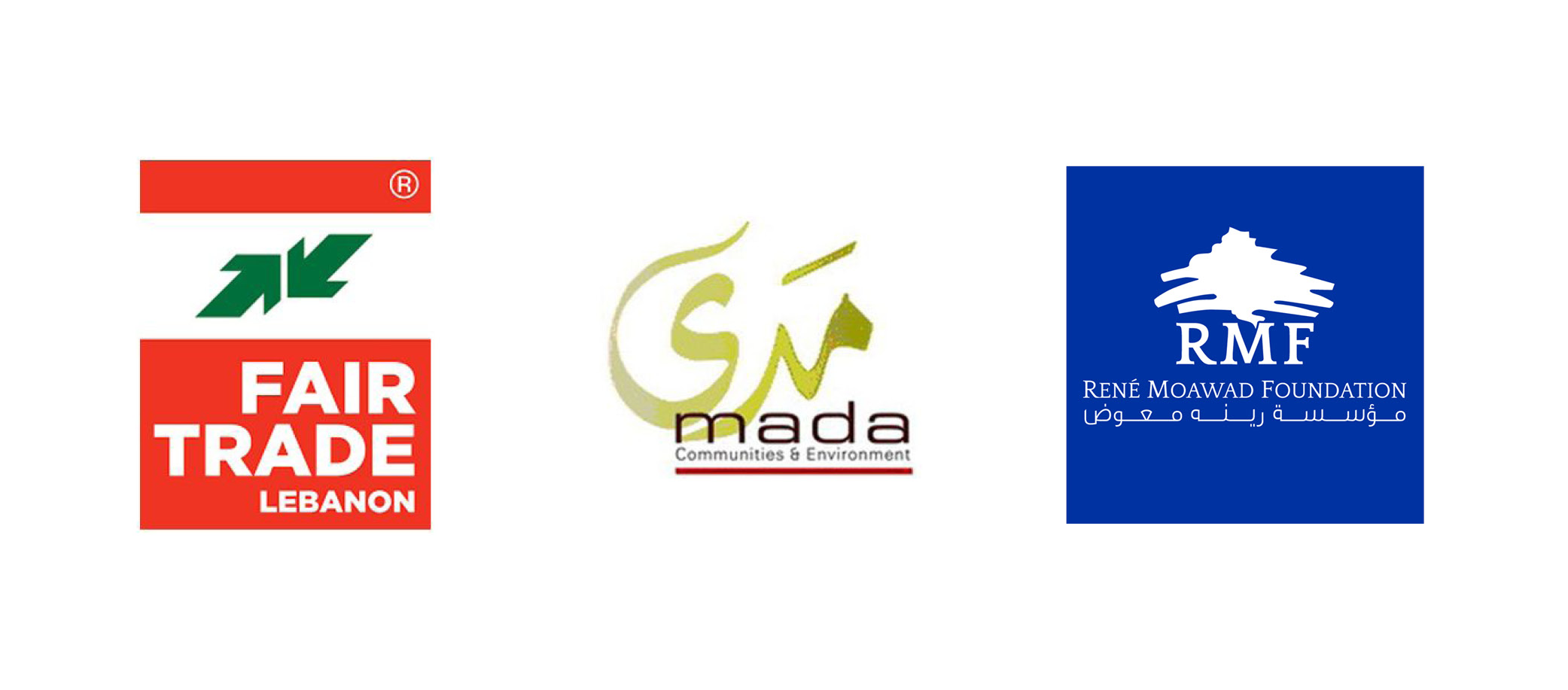Private Sector Development Programme in Lebanon (PSD-P)
Objective
-
€15mBUDGET
-
25/02/2016PROJECT START
-
77 monthsDURATION
The Lebanese economy is affected by regional instability and a major migration crisis related to the Syrian conflict. However, the private sector remains dynamic and microenterprises and small and medium-sized enterprises (SMEs) play a vital role in the development of the local economic fabric.
To help these structures address the problems of competitiveness they face, the European Union in Lebanon and Expertise France have focused on developing synergies between actors in the same sector. The objective is to optimise costs, pool strategic functions, benefit from shared services, develop new markets and facilitate access to financing. This is how the Private Sector Development Programme (PSD-P) in Lebanon came about in 2016.
The programme closed at the end of January 2020, except for the wood processing activities which will continue until July 2020.
The objectives of PSD-P
PSD-P aims to contribute to the economic development of Lebanon and the creation and retention of jobs by improving the productivity and competitiveness of its private sector and focusing on vulnerable groups. PSD-P supports microenterprises and small and medium-sized enterprises (SMEs) by increasing their competitiveness and participation in the economy and promoting their development and integration into value chains.
The project objectives were to:
• Restructure microenterprises and SMEs in order to form strong groups that are part of an integrated action plan;
• Strengthen the position of microenterprises and SMEs on markets and promote their integration into new markets;
• Facilitate access to financing for microenterprises and SMEs;
• Create new inclusive employment opportunities and safeguard existing opportunities.
Five high-potential sectors targeted
|
PSD-P has more specifically targeted five value chains identified as having strong potential for job creation, income generation and innovation: • Avocados and market gardening in Akkar; |
|
Fair trade, the avocado sector and market gardening boosted in Akkar
In this region in northern Lebanon, Expertise France has worked with three NGOs to help reposition producers at the centre of the avocado and market gardening sectors.

• 129 women from processing cooperatives have benefited from training
• A “smart” nursery for market gardening professionals and students has been installed at the University of Balamand, on the Beino campus
• 20 producers’ markets and sales events have been organised
• 59 producers have received high-tech equipment
• 261 producers have followed technical training sessions
• 4 experimental hydroponic plots have been installed
• 2 pilot groups have been supported in the regions of Jurd (a high mountain area) and the Akkar plain.
Main outcomes:
• 259 farmers have acquired good farming practices for avocado growing;
• 44 new farmers have started growing avocados in Akkar;
• 2 high-tech demonstration plots have been developed and 2 weather stations have been installed on land owned by LARI (Abdeh, Akkar) and in an upland avocado orchard in Gebrayel;
• 21 farmers have received the Integrated Production Certification (“IP Certification”);
• A manual has been published on the standard practices to follow to obtain the certification (available opposite);
• The first avocado cooperative has been set up for the Akkar region. It is based in Halba.
Further reading: PSD Lebanon in the Akkar region: Promising results
Cherries and table grapes in Bekaa: an observatory of sectors and certified quality to improve access to markets
Expertise France and its local partners have carried out numerous activities to support the cherry and table grape sectors – two of the main agricultural products in the Bekaa region – by facilitating access to information and the market.
Local partners: Chamber of Commerce, Industry & Agriculture of Zahlé and Bekaa (CCIAZ), Natagri (in consortium with the Mediterranean Agronomy School – Saint-Joseph University and the Lebanese Agricultural Research lnstitute – IRAL) and ICON Institute
• Development of an observatory of sectors, “Agvisor”, in the form of an agricultural mobile application and a website available in Arabic and English and for download on Google Play and App Store. With its four features (fruit and vegetable prices, agricultural yearbook, agricultural library and notifications), this application aims to facilitate decision-making for farmers, improve the quality and quantity of their production and facilitate trade links.
• Development of the ICM quality certification: a collective certification process (Integrated Crop Management – ICM) was launched in 2018 with two pilot groups of cherry and table grape producers. This type of certification improves group work and cooperation between farmers from the same region and value chain. ICM specifications were developed during this pilot phase. They set out the appropriate technical specifications for cherry and table grape production in Bekaa. The objective is to apply the best agricultural practices for integrated crop management in the field in order to obtain a healthy and safe product.
The success of this pilot initiative has led to an extension of the scope of this certification to cover new areas and new farmers.
• Capacity building for producers: producers have benefited from several study tours in Europe, as well as technical and management training sessions conducted by local and international experts.
• Development of the collective brand “Merula”: to promote ICM certified cherries and table grapes, the programme has developed a collective brand, “Merula”, and specific packaging, designed based on a study of the purchasing criteria of cherry and table grape consumers. The packaging reflects quality, safety, freshness and transparency.
Main outcomes:
• 3,416 people use the Agvisor application
• 22 cherry producers have been certified ICM
• 17 table grape producers have been certified ICM
• 50 farmers are ready to apply for ICM certification in 2020
• 121 tonnes of certified table grapes have been sold (locally and internationally)
• 9.5 tonnes of certified cherries have been sold (locally and internationally)
• 39 farmers and exporters have participated in study tours in Europe
• 990 farmers have participated in 148 technical and management training sessions
For further reading: Lebanon: Review of PSD-P support to farmers in Bekaa
Umbrella brand and service platform for Tripoli furniture
Local partners: Rachid Karami International Fair – Tripoli, René Moawad Foundation

In Tripoli, the furniture sector is faced with competition from imported products. It is crucial for stakeholders in the sector to improve their position on the market.
Expertise France, BIAT, the company Terea and Markits have consequently developed Minjara, in partnership with the Association of Lebanese Industrialists (ALI).
Minjara is at the same time a brand, a quality label and a service platform. It brings together all the stakeholders involved in the creation of furniture in one place, the Rachid Karamé International Fair, in a building initially built by Oscar Niemeyer and refurbished under the programme. Suppliers, producers and designers can meet up there and benefit from services: support for design, prototyping, pre-production, the optimisation of purchase and sale processes…
|
|
|
![]() Take the virtual tour of the Minjara platform
Take the virtual tour of the Minjara platform
Extensive technical and management training has also been given, with the aim of improving the management and development capacities of SMEs in Tripoli in the furniture sector and optimising their technical knowledge. The objective is to reach a quality level consistent with international standards.
The first collections of Minjara furniture were developed in late 2018 and marketed in late 2019.
Main outcomes:
• Creation of the Minjara brand and service platform
• Creation of a material library with over 1,000 samples
• Organisation of 3 conferences during Beirut Design Week and Fair 2017 and 2018, with over 200 participants
• Organisation of 3 exhibitions in Lebanon and France gathering over 1,100 participants and 100 exhibitors
• Development of 2 Minjara collections with 73 items and resulting from the collaboration of 20 designers / design studios and 47 carpenters from Tripoli
• Creation of an online observatory with over 1,000 active members
• Sale of furniture worth some USD 90,000 in the context of Minjara collections and external demand
• 455 beneficiaries for a total of 70 support activities between 2017 and 2019
For further reading: The Minjara platform: a structural tool to support the furniture sector in Tripoli
Promoting access to finance for microenterprises and SMEs
For Lebanese microenterprises and SMEs, access to finance is a major challenge in order to enable investment and thereby support their competitiveness. Most microenterprises and SMEs do not have the essential competences required to apply for a loan and do not have access to existing financing opportunities. Consequently, they are unable to create the conditions that would allow them to benefit from financial support from Lebanese financial institutions.
Financial institutions, for their part, are mainly commercial banks and have expressed interest in improving their collaboration with the sectors and value chains supported by PSD-P. They have stated that they want to facilitate access to their financing tools for microenterprises and SMEs. To do so, they need to find out more about these sectors and determine the best way to work with the microenterprises and SMEs in question.
In this context, the programme has set up 2 types of support services:
1. Non-financial support services for microenterprises, SMEs and financial institutions which aim to:
• Increase knowledge about the sectors concerned for financial institutions, at their headquarters and regional branches;
• Improve the financial inclusion (bankability) of microenterprises and SMEs by facilitating investment grants in the relevant value chains, as well as improving their technical and financial knowledge and their management and governance skills.
2. Financial support services in order to:
• Set up a conditional grant fund to encourage microenterprises and SMEs in the value chains selected to improve their financial situation. This conditional grant fund is systematically attached to a loan and is proportional to it. Unlike the loan, the beneficiary does not have to repay these grant funds to the financial institution and they do not carry an interest rate.
The funds and loans have been allocated through Kafalat, a Lebanese financial corporation that offers loan guarantees via commercial banks, as well as with the Economic and Social Fund for Development (ESFD) agency and the microfinance institutions Vitas, Al Majmouaa, IBDAA and AEP.
Main outcomes:
• 628 beneficiaries of a conditional grant
• 314 new beneficiaries for financial institutions
• USD 834,864 of grants (an average of USD 1,329 per beneficiary)
• USD 2,289,287 of loans (an average of USD 3,645 per beneficiary)
• 19 training and information sessions for the beneficiaries and financial institutions
• 43% of the loan/grant is used to buy equipment
• 52% of the loan/grant is used to by inputs and for working capital
Overall results conclusive
In just over 4 years, PSD-P has established successful collaborations between the partners in its 3 regions and 5 sectors of operation.
This has led to an increase in the quality of the products on offer, an improved management of quantities, better value for money and, consequently, growth in sales.
 Download the capitalisation sheets on the actions carried out and results achieved by component in English or Arabic
Download the capitalisation sheets on the actions carried out and results achieved by component in English or Arabic
The programme closed on 28 January 2020 in Beirut, during a ceremony attended by over 180 people. Participants included representatives of the European Union, the French Embassy in Lebanon, Expertise France, Agence Française de Développement (AFD), the Chamber of Commerce, Industry and Agriculture of Tripoli and North Lebanon (CCIAT) and the Association of Lebanese Industrialists (ALI).
 To find out more, consult the project website: www.psdplebanon.com
To find out more, consult the project website: www.psdplebanon.com

